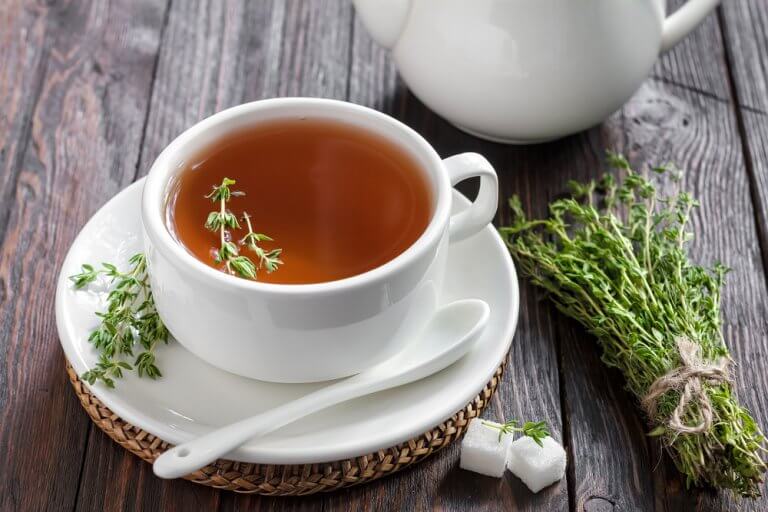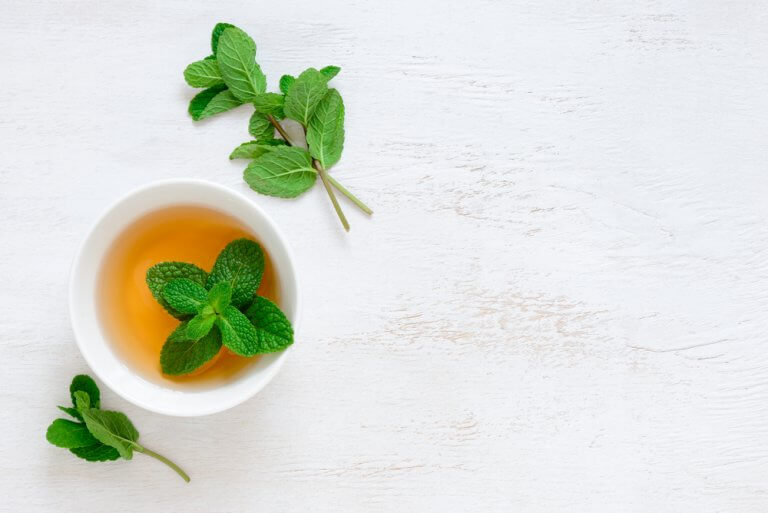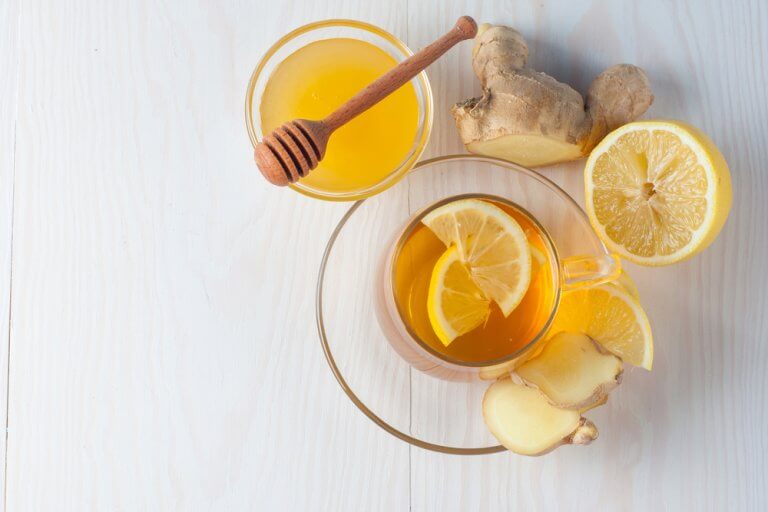The Best 5 Infusions to Relieve a Cough

Would you like to know what are the best teas to relieve that persistent cough? If so, keep reading because we’ll reveal them all below, as well as their recipes. Don’t miss out!
Before continuing, let’s be clear in that, though annoying, coughing is an act, a defense mechanism of the body, which helps keep the throat and respiratory tract clear of possible pathogens.
The good news is that, when the cough is mild and punctual, you can easily relieve it with candies, herbal infusions, or a room humidifier.
The best infusions to relieve a cough
The infusions below are the best to help you relieve a cough in a natural way. Write them down, they’re quite tasty!
1. Thyme infusion

Singers and other people who use their voice a lot, love thyme tea. It’s not strange; this herb is very good for infections of your vocal tract and lungs.
- It’s also an effective anti-inflammatory
- According to the Spanish Nutrition Foundation, thyme contains: zinc, calcium, phosphorus, potassium, magnesium, thiamine, iron, riboflavin, niacin, vitamin A, thymol, carvacrol, and cineol
2. Lemon-honey-cinnamon infusion
The mixture of citrus fruit, cinnamon, and honey is very pleasant to the palate and can also help relieve a cough.
- According to popular belief, lemon (because of its vitamin C content) has an antibiotic effect which is what brings relief.
- Because of its smooth texture, honey can help moisturize your throat and soothe any irritation you may have.
- Cinnamon is an extremely aromatic ingredient, capable of relaxing your throat.
- According to data from the Spanish Nutrition Foundation, cinnamon contains proteins, iron, calcium, potassium, zinc, selenium, vitamin B6 and C.
Read also: Relieve Allergies with Seven Natural Antihistamines
3. Mint infusion to relieve a cough

Among the cough relieving teas, peppermint tea (Mentha spicata) is one of the most popular. It’s attributed to anti-inflammatory, antiseptic, analgesic, carminative, and stimulant properties.
You can drink it on its own or you can add a touch of lemon or a slice of fresh orange. The result is usually aromatic, refreshing, and delicious.
4. Rooibos infusion with milk
As rooibos doesn’t contain caffeine, you can drink it at any time of the day, with a touch of milk. It’s very comforting since it’s often accompanied by a touch of vanilla (which is also aromatic).
- In case you don’t want to add milk, you can add a vegetable drink, such as almond milk. But you can also enjoy it plain.
- Since it already has a certain sweet touch, it isn’t necessary to add honey or other sweeteners, but if you wish to do so, keep it in moderation.
5. Ginger-honey beverage

The simple mixture of ginger and honey can also help relieve coughs. It’s prepared with some grated fresh ginger and add a teaspoon of honey (or less, depending on your preference). If you want, you can add some lemon and cinnamon.
- Ginger is said to have anti-inflammatory, digestive, and antiemetic properties
Brewing these infusions to relieve a cough
You need hot water to prepare any of these infusions. Just place a cup of water in the microwave for two and a half or three minutes (depending on its power), add the ingredient (ginger, thyme, mint, etc.), cover it with a lid, and let it steep for a few minutes (approximately five-seven).
Then, remove the lid and add the additional ingredient of your choice (honey, lemon juice, or a slice of orange) and drink it when it cools down enough to do so.
Read more: Seven Summer Drinks You Can Make with Fruit
What to do if your cough gets worse
If your cough gets worse and is accompanied by other symptoms that begin to intensify more and more, it’s best to see a physician for evaluation. Furthermore, treatment with expectorants, antitussives, mucolytics, or antibiotics (as appropriate) may be necessary.
We don’t recommend only drinking these beverages to stay healthy. It’s essential to incorporate them into a healthy lifestyle so they can provide benefits, otherwise, they’ll hardly be able to provide what’s expected of them.
Once again, it’s important to remember that it isn’t advisable to consume these beverages with sugar and sweeteners. Furthermore, the World Health Organization (WHO) warns that adding sugar to preparations (in general, including infusions) can be harmful in the long term.
All cited sources were thoroughly reviewed by our team to ensure their quality, reliability, currency, and validity. The bibliography of this article was considered reliable and of academic or scientific accuracy.
- Collingwood, R. G. (1993). Los principios del arte.
- Lamas, A., de Valbuena, M. R., & Máiz, L. (2014). Tos en el niño. Archivos de Bronconeumología, 50(7), 294-300.
- Salgado, F. (2011). El jengibre (Zingiber officinale). Revista internacional de acupuntura, 5(4), 167-173.
- Sánchez, J. A. P. (2013). CASO CLÍNICO: APLICACIÓN DE MIEL PARA EL TRATAMIENTO DE ÚLCERAS BASADO EN LITERATURA CIENTÍFICA. Hygia de enfermería: revista científica del colegio, (83), 48-55.
This text is provided for informational purposes only and does not replace consultation with a professional. If in doubt, consult your specialist.








